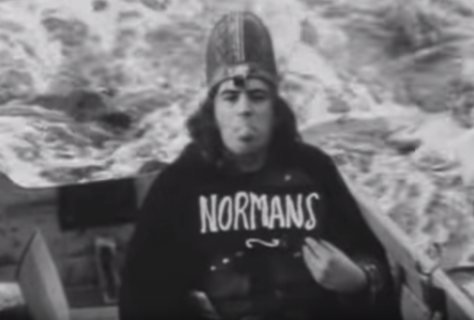She was interested in law and order, and only in law and order. That was both her strength and her limitation.
✎ WAYNE K. SPEAR ○ FEBRUARY 15, 2020 ○ Personal Essay
ON THE MORNING OF Monday February 4, 2008 I got a phone call from Christie Blatchford. I was the Director of Communications at the Aboriginal Healing Foundation and Blatchford was working on a series of articles for the National Post concerning the Yellow Quill First Nation, where the AHF had funded a project.
In a few years I’d be writing for the National Post myself, but I never got to know Christie Blatchford well. I’d long known of her work, and we’d had a few conversations. Even before I’d ever spoken to her I had inferred from her writing that she was tough and to-the-point. And she was. Her vocabulary was peppered with shits and fucks, which was fine by me. I knew why she was calling: she had a hunch that with a bit of digging she’d unearth nastiness. The Executive Director, Mike DeGagne, was lining his pockets, or perhaps we were funnelling dollars to the well-connected. Something had to be rotten in the state of Denmark, and Blatchford was calling me to work out exactly what it was.
After the call I wrote a briefing note and took it to Mike. He knew Blatchford’s writing, and so he knew as I did that she wasn’t exactly a champion of Indigenous perspectives. I had a standing policy with journalists, which was to educate them as best I could about the nature and importance of our work, and to win them over to the cause. If it took days or months or even years, so be it. My door was always open to them, and so was my phone line. I’d give them as much time as they wanted. Sometimes I found myself pushing on an open door, as was the case with media folks like Marie Wadden and Shelagh Rogers, but I knew that wasn’t going to be the case with Blatchford. She was a court reporter who’d seen the worst of humanity. For years my father was an OPP court officer, so I was well acquainted with the skeptical mindset that this work engendered. In fact I welcomed the skeptics because I understood them. So winning over Blatchford became something of an obsession.
I said to Mike, listen, I think I know what makes Christie Blatchford tick. She’s drawn to the courts because it throws the drama of human morality into sharp relief. The injustice she confronts there makes her churn wth indignation, and if we can make her see that we’re in the business of addressing historic injustices, maybe she’ll become as fierce an advocate as she is a critic. Imagine that! After all, I said, inside every skeptic is a disappointed idealist. Let’s invite her to the office and put every goddamn file in front of her, nothing hidden, and let her see with her own eyes that we are not the villains she imagines—and that to the contrary we are trying to do something of positive value.
It was an easy pitch, not that Mike ever resisted my counsel. He ran a transparent operation and in sixteen years no one ever caught us with our knickers round the ankles, although many of the best put their shoulder into it. I remember sitting at the AHF boardroom table with Curt Petrovich, an investigative reporter who cast a cold eye on our organization. He went away disappointed, as they all did. I’ll be candid and admit that I enjoyed the game. I had journalism in my background and respected people who were hard headed and tenacious and challenging. Suppose there was in fact corruption. Well, then we would have deserved to be brought down, and the fact is I admire the people who commit themselves to doing it.
When I was young and contemplating a career in journalism, Blatchford was living the life that I fantasized for myself. The by-line at a major outlet, fame, house parties where the booze flowed and the elbows of colleagues rubbed. Back then journalists could still believe they were doing something nobIe, even if it was bullshit, and there was no shortage of money to help them do it. That’s all gone. I was just old enough for the dying years of the old school of journalism, where newsrooms were loud and smoked-filled and a lunch would stretch well into the afternoon. Now the business of journalism goes about in eerie silence, and the changes are so remarkable and happened so fast (at least it seems that way now) that Kelly McParland and I got talking about it one day at the National Post’s headquarters. Some of the changes reflect the decline of the occupation, but most of the change is good. The alcoholism is no longer glamourized, and while journalism remains dominated by men, chauvinism is regarded more as a bug than a feature. Editors tell me they want a more diverse workforce and admit they have a ways to go. So there’s that.
Why this digression into the world of journalism? In my ideal world I would have won Blatchford over and, who knows, we might have become colleagues and even friends. But I was operating in the real world, where neither of these happened. Christie Blatchford made it very clear to me that she was interested in law and order, and only in law and order. That was both her strength and her limitation. When she realized there was nothing lurid to write about the Aboriginal Healing Foundation, nothing to get people outraged over, no human malfeasance to press into the ready forms of her worldview, she lost all interest. One day the calls just stopped, and she moved on.
I kept her phone number and her email and I suppose I also held to a remnant of my idealism, because I sent her an email later on, when she was writing articles about Caledonia. Once again, I tried to win her over. Christie, I wrote, there’s a long history leading up to the Haldimand Tract dispute, and if you really want to understand what’s happening today, and if you want your readers to truly understand, and to be informed, you need to look at that context. Nothing is going to change in this country until we come to terms with the past, I told her. And after all, isn’t it the job of a journalist to dig, and to present all the perspectives, and to make people understand?
Christie was a lot of things, but one thing she wasn’t was subtle. She had told me in no uncertain terms that she was only interested in punishing people who had broken the law, and I guess I should have left it at that. In any case, she never wrote back. ⌾








